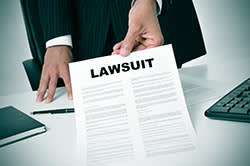Common Claims in Personal Injury Cases
July 17, 2015
 There are a number of issues that can come up in a personal injury case. Every personal injury case will include a claim for compensatory damages, meant to compensate the plaintiff for any loss. It is important to include all claims that apply in a lawsuit because, if one is omitted, there is no second chance to reopen the case. Some of the most common types of compensatory damages include:
There are a number of issues that can come up in a personal injury case. Every personal injury case will include a claim for compensatory damages, meant to compensate the plaintiff for any loss. It is important to include all claims that apply in a lawsuit because, if one is omitted, there is no second chance to reopen the case. Some of the most common types of compensatory damages include:
Property damage: If personal or real property is damaged as a result of an action of the defendant, the plaintiff can include a claim for property damage.
Medical costs: Any out of pocket medical bills should be reimbursed as part of a lawsuit. If an insurance company paid medical bills, they may assert a right to be reimbursed out of the proceeds of any personal injury settlement.
Pain and suffering: This is meant to address the physical, mental, and emotional anguish that comes with being the victim of an accident. In many cases, the path to rehabilitation and recovery is difficult, painful, and frustrating. A victim should be compensated, at least in part, for the interruption of their lives.
Permanent injury: Often, despite the doctors’ best efforts, a patient is left with permanent pain or the loss of function of a body part after treatment is complete. Even though it is impossible to assess the value of this monetarily, the courts will try their best to put a number on it and compensate plaintiffs accordingly.
Lost wages: A claim for lost wages seeks to recover money for any work that was missed as a result of an injury. The lost work may have occurred immediately after the accident, or may have accrued over a period of time, including any days missed to receive treatment.
Loss of consortium: After a serious injury, many aspects of a victim’s life change. If his or her ability to be intimate with a spouse is affected, a claim of loss of consortium may be included in the complaint. It does not matter if the problem is a physical one or a psychological one.
